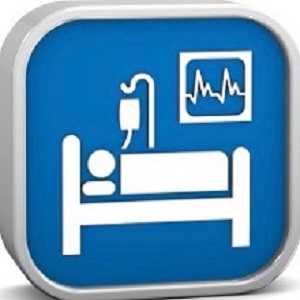
Intensive Care Units (ICUs), which provide the most expensive and invasive forms of care in a hospital setting, are being used too often for patients who don't need that level of care, according to a study by LA BioMed and University of California – Los Angeles (UCLA) researchers.
The researchers studied 808 ICU admissions from 1 July, 2015 to 15 June, 2016 at Harbor-UCLA Medical Centre and found that more than half the patients could have been cared for in less expensive and invasive settings. Of the patients in the study, 23.4% were in need of close monitoring but not ICU-level care. Another 20.9% of the patients were critically ill but unlikely to recover because they had underlying illnesses or severity of acute illness. For another 8%, death was imminent or the same outcomes were expected in non-ICU care.
"Our study found over 50% of patients admitted to the ICU were categorised into groups suggesting that they were potentially either too well or too sick to benefit from ICU care or could have received equivalent care in non-ICU settings," said Dr Dong W Chang, an LA BioMed researcher and the corresponding author for the study. "This research indicates that ICU care is inefficient because it is devoting substantial resources to patients who are less likely to benefit from this level of care. These findings are a concern for patients, providers and the health care system because ICU care is frequently invasive and comes at a substantial cost."
The researchers added up the number of days each of the patients in the study spent in ICU and found nearly 65% of the total number of days those patients spent in ICU were allocated to care that was considered discretionary monitoring, had a low likelihood of benefit despite critical illness or would have been manageable in non-ICU settings.
"While this is a study of just one hospital and results may differ at other medical centres, we suspect that these characteristics of ICU utilisation are commonplace and prevalent in many institutions," said Chang.
The researchers also noted that in other hospitals, the ICU may be the most appropriate level of care because the hospitals don't have appropriate levels of care for those patients outside the ICU.
"However, there is likely to be a subset of patients in which ICU care leads to unwanted, invasive care without significant clinical benefit," said Chang. "Refining our ability to identify these patients and developing approaches to improve ICU utilisation for those patients are important steps to assure the best care for patients and the most efficient use of the healthcare system's limited resources."
Summary
Critical care services can be life-saving, but many patients admitted to intensive care units (ICUs) are too sick or, conversely, not sick enough to benefit. Intensive care unit over-utilisation can produce more costly and invasive care without improving outcomes. Guidelines from the Society of Critical Care Medicine (SCCM) prioritize patients for ICU admission based on projected likelihood of benefit (from highest to lowest priority) as follows: priority 1: critically ill, needing intensive treatment and monitoring that cannot be provided outside of ICUs; priority 2: not critically ill, but requiring close monitoring and potentially immediate intervention; priority 3: critically ill, but reduced likelihood of recovery because of underlying diseases or severity of acute illness; and priority 4: not appropriate for ICU; equivalent outcomes achievable with non-ICU care based on low risk of clinical deterioration, presence of irreversible illness, or imminent death.
Authors
Dong W Chang; Daniel Dacosta; Martin F Shapiro
[link url="https://www.sciencedaily.com/releases/2016/12/161227110700.htm"]LA Biomed material[/link]
[link url="http://jamanetwork.com/journals/jamainternalmedicine/article-abstract/2594281"]JAMA Internal Medicine research letter[/link]
